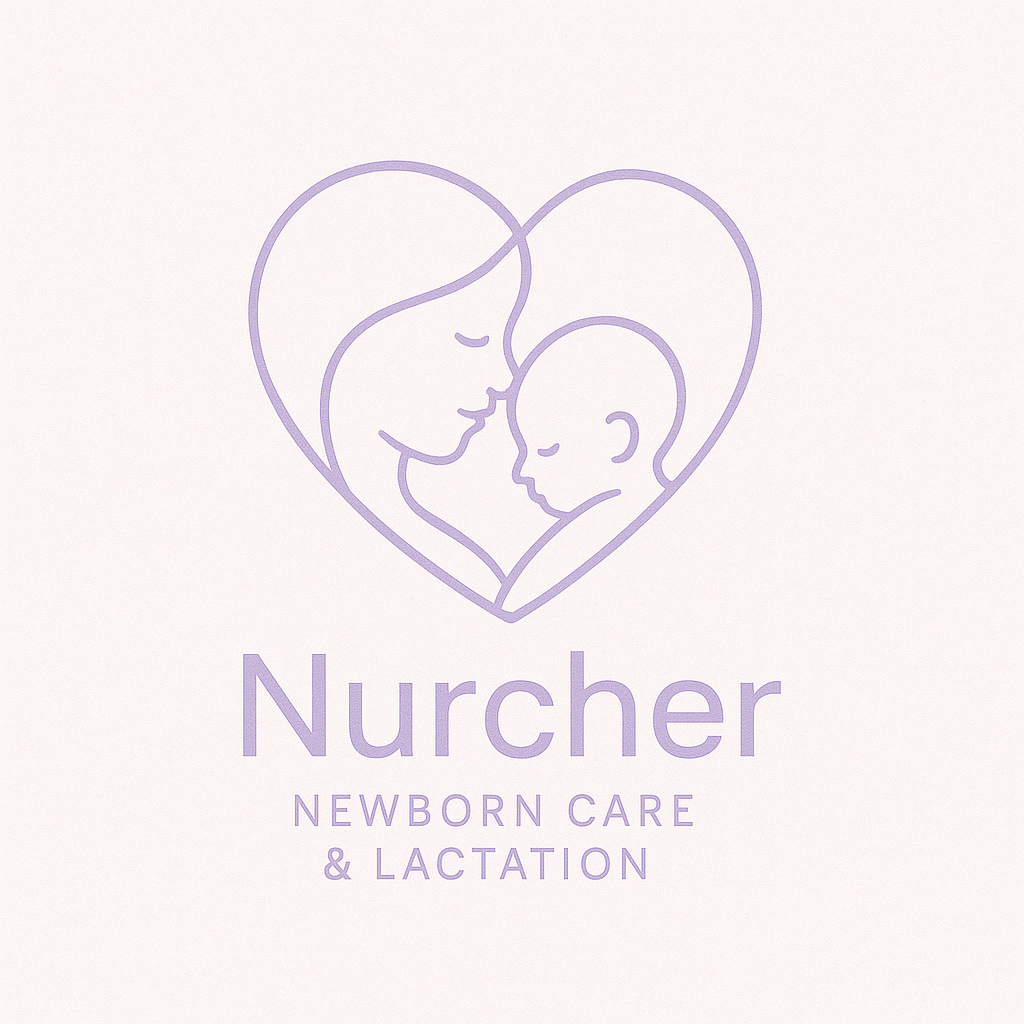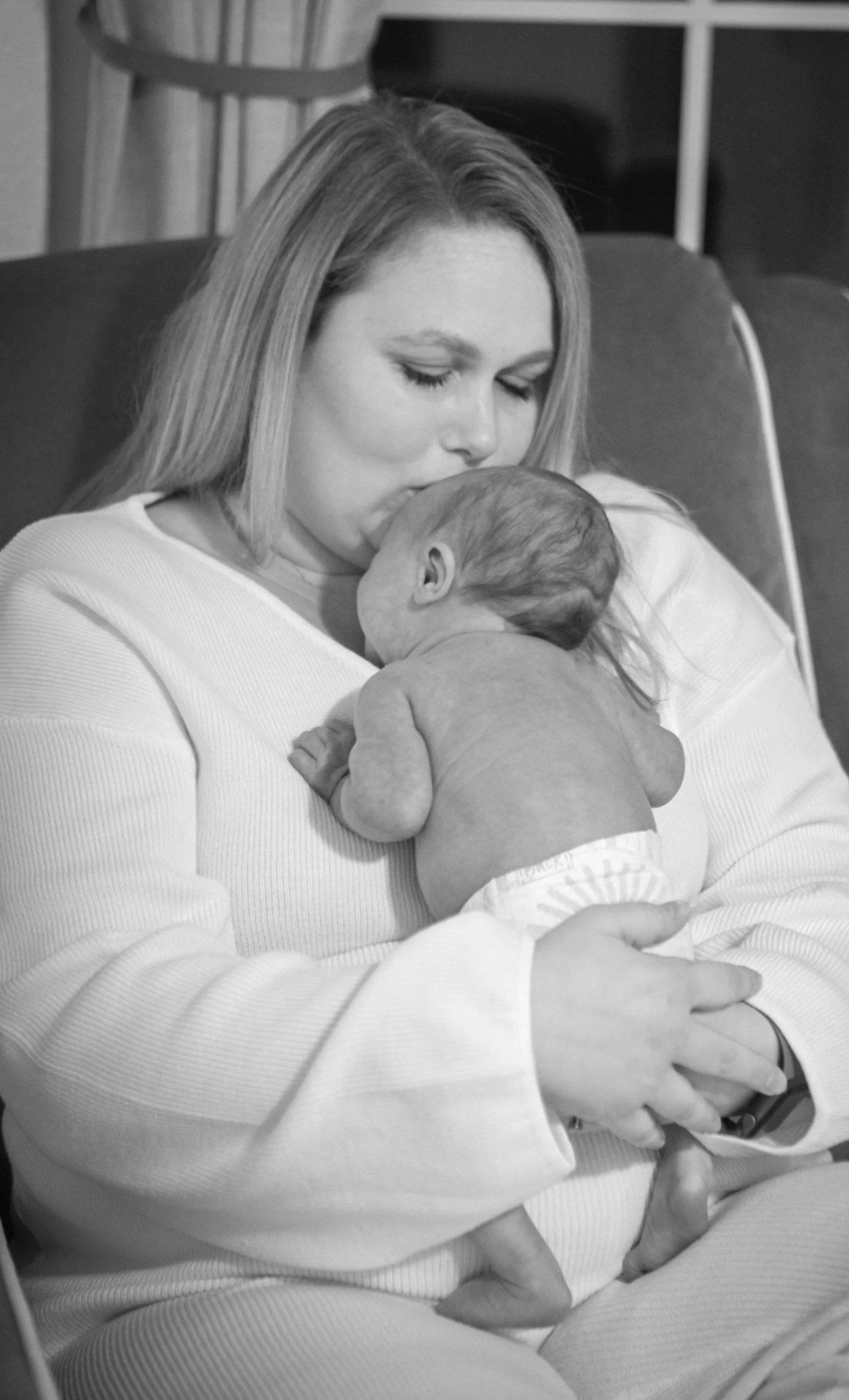My Breastfeeding Journey: The Real Story Behind My Passion
A Rocky Start
I never expected that becoming a mom would lead me down the path to becoming a lactation consultant but here we are. My journey began with an unplanned induction and a whirlwind postpartum experience. I got to have my daughter with me for about 24 hours before she was admitted to the NICU for low blood sugars. She needed formula supplementation to stabilize her, and by the time we were discharged home, she was almost exclusively bottle-feeding formula. I knew this was a precarious place to be if I wanted to breastfeed, but thankfully, my job as a NICU nurse had connected me with incredible resources: friends, pediatricians, and lactation consultants. Just a couple of days after getting home, I reached out to a lactation consultant friend for help. She connected me with someone local, someone who happened to be a co-worker, who came to my house and gently, knowledgeably, and compassionately supported me. She encouraged me to keep trying, to believe in myself, and to believe in my baby. It took nearly six weeks of hard work to wean from bottles of formula to bottles of breastmilk before ultimately reaching exclusive breastfeeding. I had weekly lactation visits and another home visit. But we did it and that win felt huge!
Finding Confidence
It wasn't until my daughter was about two months old that I felt like we were truly finding our stride. I finally felt confident enough to leave the house without a bottle or pump, knowing I’d be out long enough with her that I would need to feed her in public. That first time was nerve-wracking, but it was wildly successful and gave me a big confidence boost. I finally felt like we made it.
The Setback
And then, just a month later, things took a sudden turn. My daughter became fussy at the breast. Her feeds got shorter, sometimes just a couple of minutes, and feeding became a battle. She would arch, scream, and refuse the breast unless I caught her half-asleep or just waking up. My gut told me something was wrong and after a call to the advice nurse, we ended up in the ER, where they diagnosed her with thrush. But even after treatment, nothing improved.
I did my own research. Maybe it was a nursing strike? Maybe she was just distracted? Babies at this age feed faster, right? But my instincts kept screaming that something deeper was wrong. I made a lactation appointment and cried through the whole thing. But, my lactation consultant gave me the greatest gift, one I couldn’t give myself; she validated me. She told me that this wasn’t normal fussiness; this was a baby in distress. My daughter had stopped gaining weight. She wasn’t getting enough nutrition. My consultant reminded me that bottles were tools, not failures. She even helped me reach out to my pediatrician and that day we started reflux medication. It took trial and error, and reaching the maximum dose, before we finally found relief.
The Diagnosis: Reflux and Breastfeeding Aversion
But the damage had been done. My daughter had developed a breastfeeding aversion as she was now associating the breast with the pain due to her reflux. We had to rebuild our feeding relationship from scratch. Triple feeding returned: offer breast, bottle-feed, pump. It was exhausting and heartbreaking. My supply had dropped. The only saving grace? My freezer stash of the milk I had pumped in those early months. I felt defeated and discouraged. One day I even called the lactation office to ask if it was worth coming to my follow up appointment. It was with that call that I learned a valuable lesson: don’t ask questions unless you want an honest answer. I asked if she had seen baby’s come back to breastfeeding after developing a breastfeeding aversion. Her answer devastated me. She said that in her experience, most babies don’t return to the breast after an aversion. She even tried to offer comfort by commending my journey thus far, reassuring me that my daughter had received so much benefit from the breastmilk she had already gotten in her short life, and even offered me permission that I’m not sure I could have offered myself, that it was OK to stop breastfeeding. While I think her heart was in the right place, her honesty crushed me. I cried. I grieved. I questioned everything. And after I gave myself the space to do that, I decided I wasn’t done trying.
The Long Road Back
I researched obsessively, reached out to other moms, asked for every tip and trick, because I was going to try it all. I decided, if after trying everything I could and if both my daughter and I didn’t find the comfort and bond with breastfeeding that we had established, I would close this chapter. I made peace with the idea that breastfeeding was about joy, for both of us, and if it no longer brought joy, I’d let it go. But not before trying everything. The slow method of reintroducing the breast became our path. The approach was simple in theory: offer the breast first and at the very first sign of refusal, stop and offer the bottle without stress or pressure, and then pump to rebuild my supply. And while progress was painfully slow, it happened—two steps forward, one back.
Some days she nursed only at night. Some days once or twice during the day. Then none. Then maybe once again. Every tiny step was a victory. And finally, at almost seven months old, my daughter was back to exclusive breastfeeding. We did it. We made it through. We exceeded my 1 year goal and just recently weaned completely at 16 months (her choice) while I was 22 weeks pregnant! To say I am proud of both of our perseverance and determination would be an understatement.
Why This Matters to Me
This journey shaped everything about why I do this work. I know how lonely, confusing, and exhausting feeding struggles can be. I know the tears, the worry, the shame, the hope. And I also know what the right, and wrong, support can do to change everything. This time in my life was some of my highest highs and lowest lows in my life. I will forever be grateful for those who helped and supported me to not only reach my personal goals, but help me exceed beyond them. My passion for helping other families comes directly from living through this.
A Final Message to You
If you are struggling, questioning, doubting, I see you. You are not failing. You are doing your best. And no matter how your feeding journey unfolds, you deserve support, kindness, and guidance. It is my honor to walk beside you in this tender, important time.
Thank you for letting me share my story with you.

